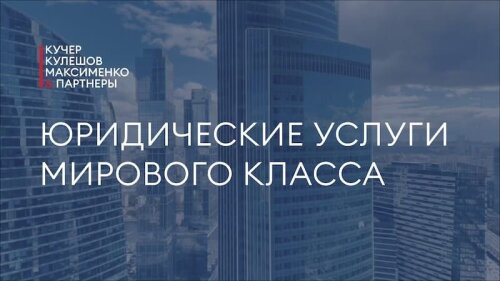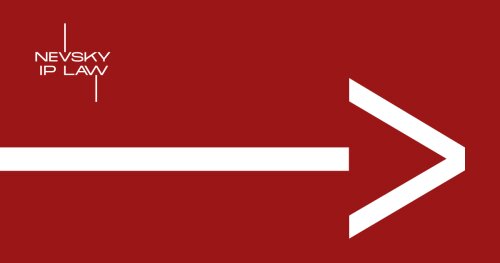Best Aviation Lawyers in Moscow
Share your needs with us, get contacted by law firms.
Free. Takes 2 min.
List of the best lawyers in Moscow, Russia
About Aviation Law in Moscow, Russia
Aviation law in Moscow, Russia, encompasses the statutes, regulations, and legal standards governing air travel and the aviation industry within the city and, by extension, the country. This body of law covers various aspects including aircraft operation, maintenance, air traffic control, safety and security measures, and airport management. Moscow, being a major hub for travel with airports like Sheremetyevo, Domodedovo, and Vnukovo, has a significant stake in maintaining a robust regulatory framework for its bustling aviation sector.
Why You May Need a Lawyer
There are various instances where you might require legal assistance in the aviation sector. If you are an airline operator, you may need help with regulatory compliance, aircraft financing, leasing or purchasing, or dealing with labor disputes. Passengers may seek legal counsel in cases of denied boarding, flight delays, luggage loss, or accidents. Additionally, manufacturers and service providers for the airline industry often need to navigate complex intellectual property and liability issues. Aviation lawyers can also play a crucial role in matters of international aviation law.
Local Laws Overview
The key aspects of local laws relevant to aviation in Moscow include compliance with the Federal Air Transport Agency regulations (Rosaviatsiya) and adherence to international conventions that Russia is part of, like the Chicago Convention on International Civil Aviation. Laws covering the operation of aircraft, airworthiness standards, airport security, and passenger rights are strictly enforced. Russia also has its own Air Code which sets forth the rights and responsibilities of carriers and passengers, as well as detailed regulatory provisions for airspace management, insurance, and aviation security.
Frequently Asked Questions
What rights do I have if my flight out of Moscow is severely delayed?
If your flight from Moscow is delayed, your rights will typically be outlined in the air carrier's policy and the legislation within the Russian Air Code. Depending on the duration of the delay, you might be entitled to certain amenities, rebooking, or even compensation.
Can I operate a drone in Moscow for recreational purposes?
Yes, however, there are specific rules and regulations in place for operating drones. You must adhere to the prescribed safety measures, such as not flying near airports or in restricted zones, and keeping the drone within visual line of sight.
How do I report a safety violation at a Moscow airport?
Safety violations can be reported directly to the airport authority or to the Federal Air Transport Agency. Providing detailed information and any evidence you have will be helpful for an investigation.
What should I do if I'm involved in an aircraft accident in Moscow?
In the unfortunate event of an aircraft accident, after attending to immediate safety and medical needs, it's important to contact a specialized aviation lawyer to understand your rights and obligations within Russian jurisdiction.
Are there specific laws for compensation regarding baggage loss in Moscow airports?
Yes, aviation law in Russia provides guidelines for liability and compensation in case of lost or damaged baggage. This generally involves claims directly with the airline, subject to their procedures and limitations set by law.
What entity is responsible for aviation regulation in Moscow?
The Federal Air Transport Agency, also known as Rosaviatsiya, is the governmental body that regulates aviation in Moscow and throughout Russia.
How can I resolve a dispute with an airline based in Moscow?
For disputes with Moscow-based airlines, you should first attempt to resolve the issue through the airline's customer service. If that fails, you may escalate your case through legal channels or aviation dispute resolution bodies.
Are foreign pilots allowed to operate in Moscow's airspace?
Foreign pilots can operate in Moscow's airspace if they comply with Russian aviation laws and international treaties, and if they have the necessary visas, permits and certifications recognized by the aviation authorities in Russia.
How is private aviation regulated in Moscow?
Private aviation in Moscow is regulated by both federal laws and specific regulations pertaining to private, corporate, or charter flights. Operators must ensure compliance with all relevant laws concerning flight operation, air traffic control, maintenance, and safety.
Do Moscow aviation laws pertain to space flights?
While aviation laws primarily govern atmospheric flights, certain principles and regulations can be applied to space activities. The specifics of space flight and outer space activities are generally governed by a different set of regulations and international agreements.
Additional Resources
Individuals seeking legal advice or additional information on aviation in Moscow can consult the Federal Air Transport Agency (Rosaviatsiya), the Interstate Aviation Committee (IAC), and the Russian Association of Air Transport Operators (AEVT) for resources and guidelines. Furthermore, the Russian Ministry of Transport has resources and documentation about aviation regulations and policy that may be useful.
Next Steps
If you require legal assistance in aviation matters in Moscow, your next steps should include identifying and reaching out to a local law firm or attorney specializing in aviation law. It's also advisable to prepare any related documentation or evidence pertinent to your issue before your consultation. In case of disputes with carriers or airports, make sure to document all communication, keeping track of dates, times, and the nature of the dispute. Ensuring a clear understanding of your rights and the applicable laws will be essential in advancing your legal concerns effectively.
Lawzana helps you find the best lawyers and law firms in Moscow through a curated and pre-screened list of qualified legal professionals. Our platform offers rankings and detailed profiles of attorneys and law firms, allowing you to compare based on practice areas, including Aviation, experience, and client feedback.
Each profile includes a description of the firm's areas of practice, client reviews, team members and partners, year of establishment, spoken languages, office locations, contact information, social media presence, and any published articles or resources. Most firms on our platform speak English and are experienced in both local and international legal matters.
Get a quote from top-rated law firms in Moscow, Russia — quickly, securely, and without unnecessary hassle.
Disclaimer:
The information provided on this page is for general informational purposes only and does not constitute legal advice. While we strive to ensure the accuracy and relevance of the content, legal information may change over time, and interpretations of the law can vary. You should always consult with a qualified legal professional for advice specific to your situation.
We disclaim all liability for actions taken or not taken based on the content of this page. If you believe any information is incorrect or outdated, please contact us, and we will review and update it where appropriate.
















